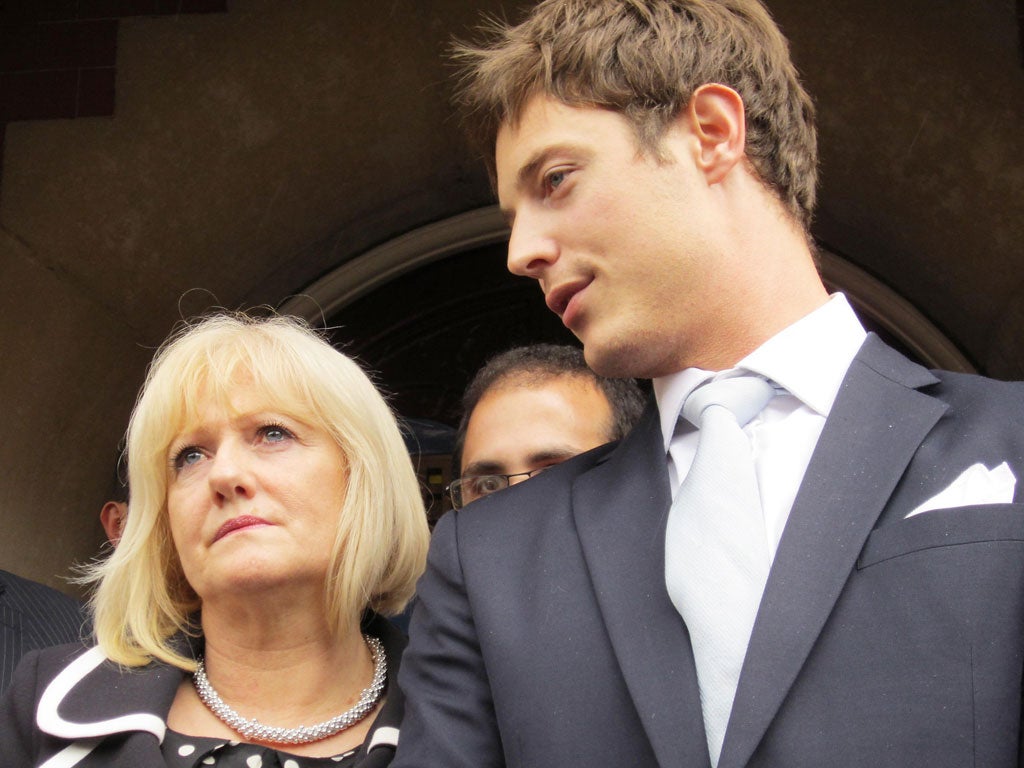Doctors' basic errors are killing 1,000 patients a month
Biggest ever study of errors in British hospitals finds one in ten patients affected

Almost 12,000 patients are dying needlessly in NHS hospitals every year because of basic errors by medical staff, according to the largest and most detailed study into hospital deaths ever performed in the UK.
The researchers from the London School of Hygiene and Tropical Medicine and colleagues found something went wrong with the care of 13 per cent of the patients who died in hospitals. An error only caused death in 5.2 per cent of these – equivalent to 11,859 preventable deaths in hospitals in England.
Helen Hogan, who led the study, said: "We found medical staff were not doing the basics well enough – monitoring blood pressure and kidney function, for example. They were also not assessing patients holistically early enough in their admission so they didn't miss any underlying condition. And they were not checking side-effects... before prescribing drugs."
In one case a middle-aged man who had a cyst on his neck removed developed an infection. He was treated with antibiotics but medical staff did not realise he was not responding until it was too late and he died.
In another case, a 40-year-old obese woman was in hospital for three weeks while doctors investigated symptoms including vomiting and weight loss before discovering she had ovarian cancer. She was never given preventive treatment for blood clots – a risk of prolonged bed rest – and died of a clot on the lung.
The study was based on analysis of 1,000 deaths at 10 NHS trusts during 2009. Previous estimates have suggested up to 40,000 deaths a year are caused by errors in care but these have been based on international studies and have not directly linked the errors with the cause of death.
Dr Hogan added: "Hospitals must learn from careful analysis of preventable deaths and make every effort to avoid [them]."
Most of the patients who died were elderly and frail and suffering from multiple conditions. But some were in their 40s and 30s. More supervision by senior consultants was required to ensure junior doctors carried out proper assessment on admission and liaised with GPs and social services.
International evidence suggests one in 10 hospital patients suffers harm as a result of errors in their care, ranging from short-term effects from a wrong prescription to severe harm resulting from an operation on the wrong limb.
But the new study, published online in BMJ Quality and Safety, found errors of omission were more frequent than active mistakes.
Dr Hogan said: "The NHS in the future is going to have to look after very frail elderly patients as their numbers increase. Our systems are not robust enough to ensure we avoid harming them."
The authors say the quality of hospital care should be assessed on the basis of harm caused by errors, rather than on deaths. "If 95 per cent of deaths in hospital are not due to preventable poor care, the scope for hospitals to demonstrate reduction in their mortality rate is limited," they say.
A Department of Health spokesperson said it was an important study which revealed a picture of preventable deaths.
"Patients have a right to expect the very best care from the NHS. Any preventable death in hospital is unacceptable and we expect the NHS to ensure patients receive high-quality, safe and effective care. We know that data like this can help hospitals to improve services," said the spokesperson.
Man who died of dehydration was killed by hospital neglect
Neglect by medical staff led to a man dying of dehydration in a hospital bed, a coroner has ruled. Medical staff at St George's Hospital in Tooting, south London, did not give Kane Gorny vital medication to help him retain fluids. The 22-year-old, who was a keen sportsman, even phoned police from his hospital bed as he was so desperate for a glass of water, the inquest heard. Deputy Coroner Dr Shirley Radcliffe told the hearing: "A cascade of individual failures has led to an incredibly tragic outcome."
She recorded a narrative verdict at Westminster Coroner's Court and said Mr Gorny had died from dehydration contributed to by neglect. Dr Radcliffe said: "Kane was undoubtedly let down by incompetence of staff, poor communication [and] lack of leadership, both medical and nursing."
James Stevenson, the solicitor for Mr Gorny's family, said they were "devastated by the number of missed opportunities" to prevent his death.
Join our commenting forum
Join thought-provoking conversations, follow other Independent readers and see their replies
Comments
Bookmark popover
Removed from bookmarks